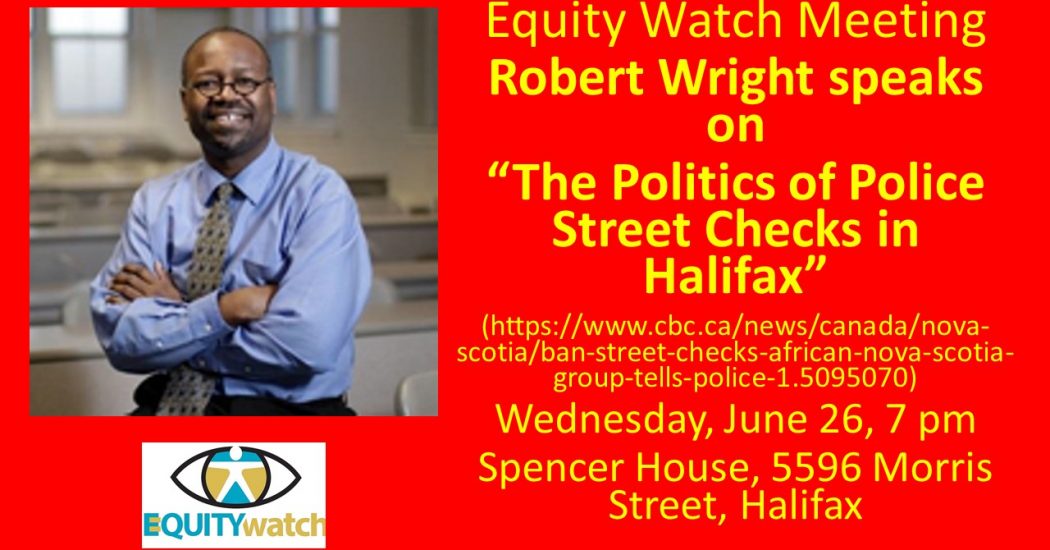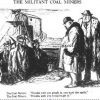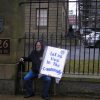Robert Wright will speak on “The Politics of Police Street Checks in Halifax.” Wednesday, 26 June, 2019 at 7 pm at Spencer House, 5596 Morris Street, Halifax.

The Halifax police routine of disproportionately targeting African Nova Scotians for street checks has existed for a long time. As early as the 1970s, Black community organizations were meeting with Police, the Human Rights Commission and City Councils demanding an end to this practice.
In 2003, Kirk Johnson, from North Preston, one of the best-known boxers in the world, filed a Human Rights complaint after being stopped 28 times over a cumulative period of a few months in his visits back to Halifax. The Human Rights Board of Inquiry found the Police discriminated against him based on his race, awarded him $15,000 and ordered many institutional remedies, including anti-racism education and diversity training.
Among those measures was an order that the Police maintain a record, by race, of their street checks. These numbers remained unshared until a 2017 FOIPOP request by the CBC revealed that over 12 years African Nova Scotians were stopped proportionately three times as often as whites. This statistic rose to nine times for Black males with the subsequent study by Toronto criminologist Scott Wortley, who concluded that the checks have had a “disproportionate and negative” impact on the African Nova Scotia community.
An inquiry in Ontario by judge Michael Tulloch in 2018 concluded that street checks have little or no value in policing and that they damage marginalized communites and alienate them from the police.
Robert Wright is a long-time social worker, community activist, and member of the African Nova Scotian Decade for People of African Descent (DPAD) coalition. Calling street checks “illegal,” DPAD has refused to take part in Attorney General Mark Furey’s consultations on “regulating” the practice.
Says Wright, “We were really concerned about sitting at a table to negotiate around the issue of street checks given our position that street checks are illegal,” and “conceding to allow street checks to continue in order to have bargaining chips at that table is not a position that we would take…”We cannot sit and talk with the police or the province about what the alternative to street checks should be while street checks are still happening.”



